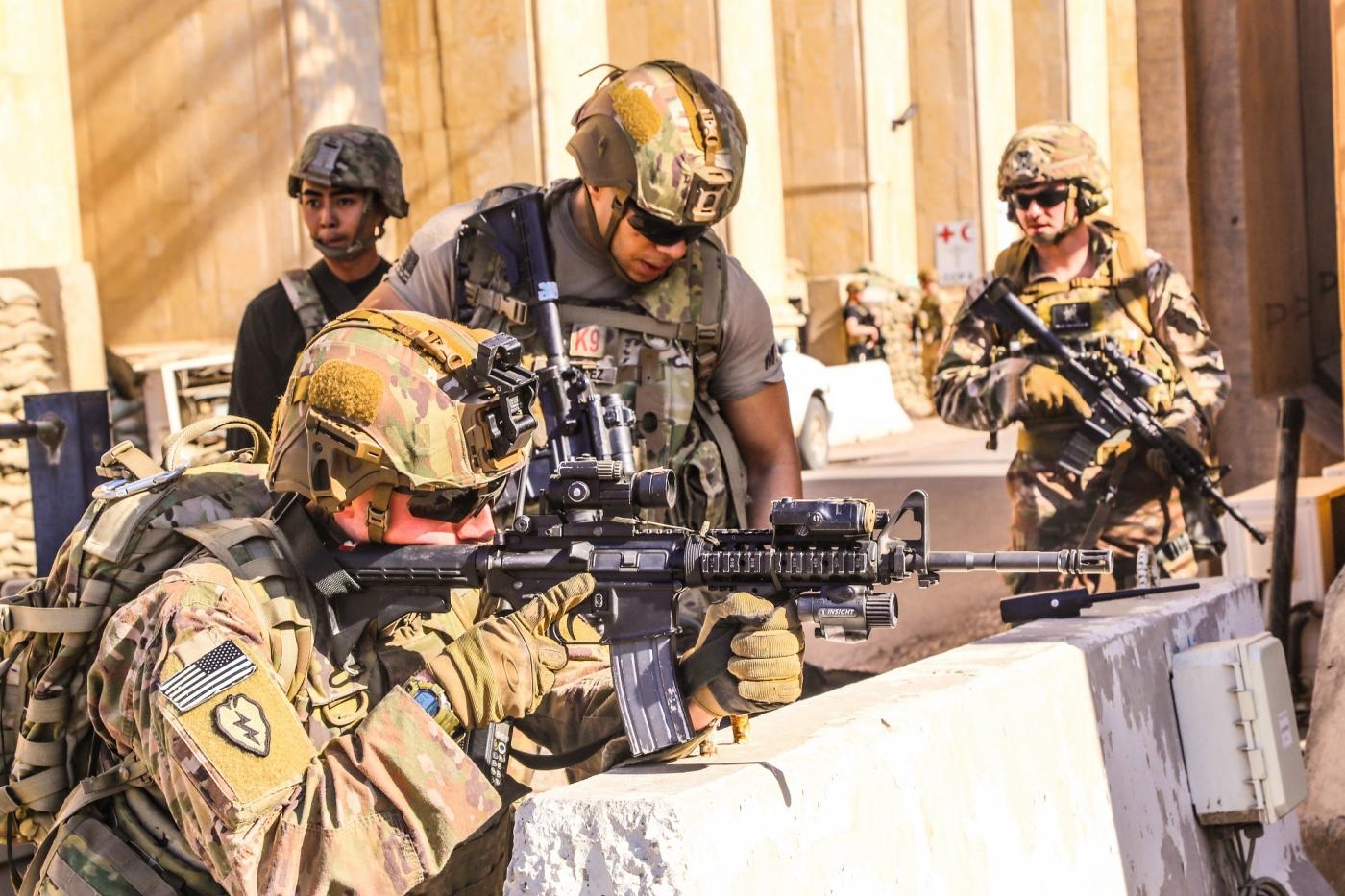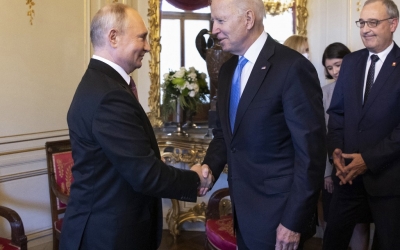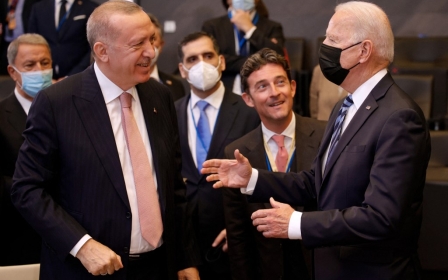US House votes to repeal 2002 Iraq war authorisation

The US House of Representatives voted to repeal the law that authorised former President George W Bush to invade Iraq, in a step that lawmakers say will help end America's "forever wars".
In a 268-161 vote on Thursday, the House approved revoking the 2002 Authorization for Use of Military Force, with all but one Democrat voting in favour and 49 Republicans joining them.
The bill now needs to be adopted by the Democratic-controlled Senate and signed by President Joe Biden to become law.
The White House, which had backed the legislation, said earlier this week that it would have "minimal impact" on current US military operations in Iraq. The 2002 AUMF was cited by the Trump administration as the legal justification for the 2020 US strike that killed top Iranian general Qassem Soleimani.
Progressive congress members hailed the vote as a victory in the push to avoid military conflicts and reign in presidential war powers.
"Let's be clear: US military operations carried out under the 2002 AUMF officially concluded in 2011 and this authorization no longer serves any operational purpose. As long as it remains on the books, the law is susceptible to further abuse by any President," Congresswoman Barbara Lee, who introduced the resolution, said in a statement.
"Now is the time for bold action to end our forever wars. We must seize this opportunity to reassert Congress’s Constitutional authority on matters of war and peace."
'Endless wars'
Lee pledged to continue working towards that goal, including revoking the 2001 AUMF, which gave then-President Bush the authority to strike the perpetrators of the 9/11 attack anywhere in the world. At the time, the congresswoman was the sole legislator to vote against the measure.
"This effort extends beyond repealing the 2002 AUMF - we must also work to repeal the overly broad 2001 AUMF so that no future president has the unilateral power to plunge us into endless wars," Lee said on Thursday.
In a House floor speech, Representative Ilhan Omar said "endless wars" divert resources from American communities at home.
"The act of war does nothing to make us safe," Omar said. "Engaging in endless wars has led us to undermining our most important morals - peace, liberty and justice."
Democratic Senator Tim Kaine called on the Senate to follow through and repeal the 2002 AUMF. He himself has introduced a bipartisan bill to that effect.
"The 18-year-old Iraq War authorization is obsolete. The Government of Iraq is now a partner - not an enemy - so the House’s vote to repeal it is both welcome and overdue," he wrote in a tweet. "Time for the Senate to follow suit and put the 2002 AUMF to rest before a future president wreaks havoc with it."
Schumer backs repeal
Senate Majority Leader Chuck Schumer on Wednesday voiced support for revoking the 2002 law.
"The Iraq war has been over for nearly a decade, an authorization passed in 2002 was no longer necessary in 2021," he said.
Repealing the 2002 authorisation appears symbolic, but its supporters say it ends the possibility of presidential abuse.
Congresswoman Sara Jacobs, a California Democrat, said she was in high school when Congress passed the 2002 authorisation.
"Repealing this authorization would not impact any of our current military operations," she said in a speech ahead of the vote on Thursday.
"But repealing it will prevent a future president from abusing it and reclaim Congress's rightful role in authorizing war, ensuring our service members know that they are not being sent to harm's way without a full debate of this representative body."
Opponents of repealing the 2002 AUMF argued that the move may limit American military ability against foes in the Middle East.
Michael McCaul, the top Republican on the House Foreign Affairs Committee, said in a floor speech that the repeal "sends a dangerous message of disengagement that could destabilize Iraq, embolden Iran, which it will, and strengthen al-Qaeda and ISIS in the region."
Middle East Eye propose une couverture et une analyse indépendantes et incomparables du Moyen-Orient, de l’Afrique du Nord et d’autres régions du monde. Pour en savoir plus sur la reprise de ce contenu et les frais qui s’appliquent, veuillez remplir ce formulaire [en anglais]. Pour en savoir plus sur MEE, cliquez ici [en anglais].





